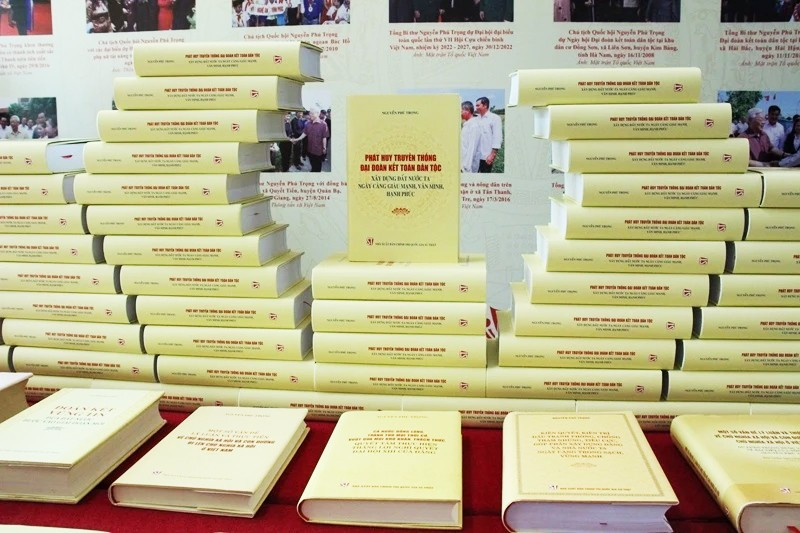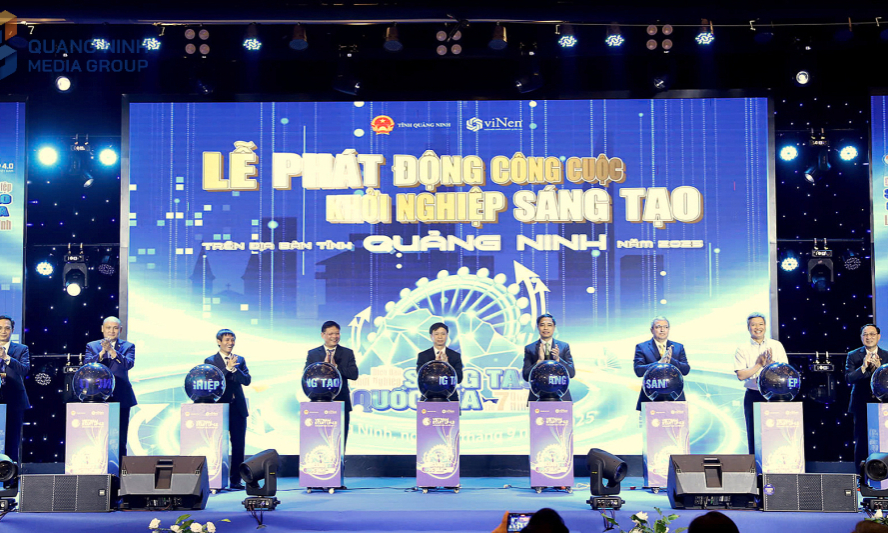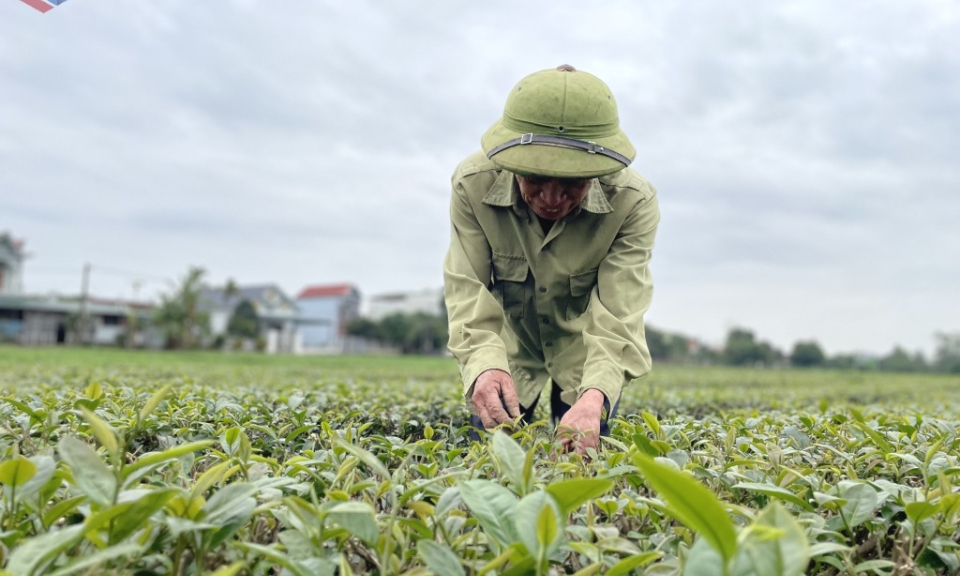Party chief’s book provides guidance for religions in promoting national solidarity
Vice Chairman of the Vietnam Buddhist Sangha (VBS) Executive Council Most Venerable Thich Gia Quang has described Party General Secretary Nguyen Phu Trong's book on the promotion of the great national solidarity tradition as a guidance for the VBS to strengthen its place in the national great unity bloc. 
The book was recently published by the Party Delegation of the Vietnam Fatherland Front in collaboration with the Su that (Truth) National Political Publishing House.
The monk, who is , said the systematic collection of the Party chief’s thoughts and viewpoints that have theoretical and practical values on promoting the tradition of great national unity is very useful for all sectors and all-level administrations, including religious organisations, to grasp and effectively perform the mission of leveraging the strength of the great national unity.
The book reflects the vision and wisdom as well as comprehensive and thorough guidance of the Party leader, he said, adding that it demonstrates the Party chief’s consistent ideology regarding the great national unity which is a strategic direction of the Party, a decisive factor for the success of the national construction and defence cause in all periods.
He affirmed that the book holds immense significance, serving as a handbook with strategic directions and practical guidance. It provides profound insights and important recommendations, contributing to stirring up the patriotic spirit, the will for national self-reliance, the strength of great national unity, and the aspirations for a prosperous country.
The 748-page book comprises an overview, 75 outstanding speeches, articles, interviews, letters and appeals by the Party General Secretary, along with 142 photos reflecting his visits to the 63 provinces and cities nationwide.
Of the three sections, the first focuses on the great national solidarity as the internal strength and the decisive factor of the success of the national construction and defence. The second is on the promotion of the core political role of the Vietnam Fatherland Front and socio-political organisations to help achieve the country’s socio-economic development targets. The third is about the promotion of people and localities’ role to contribute more to the national reform.






